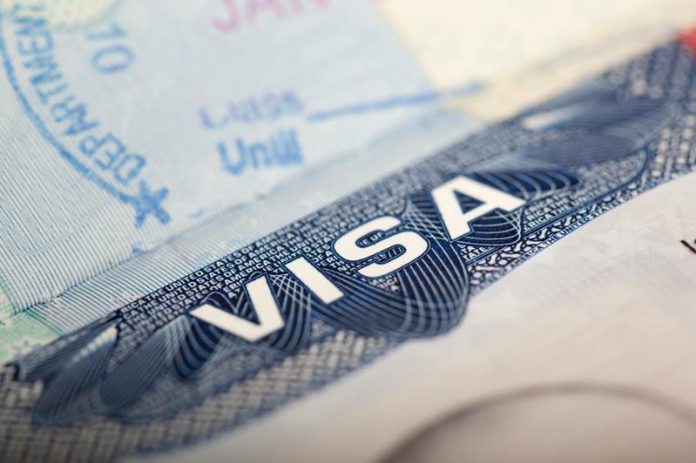
During the transatlantic slave trade, the utilitarian lens shaped the rhetoric around African slaves to social stability and economic growth. A utilitarian lens focuses on judging actions or policies based on their overall usefulness or the greatest benefit they provide to the most people, often prioritizing economic or practical outcomes over individual rights or moral considerations. Centuries later, similar tropes persist in discussions about undocumented immigrants and skilled foreign workers. Whether it is the framing of undocumented immigrants as essential labor for agriculture or the celebration of H-1B visa holders as drivers of technological innovation, these narratives reduce individuals to tools for economic advancement. They also perpetuate dehumanization and sustain systems of exploitation, even when written with seemingly positive intentions.
The prospect of mass deportations by President-elect Donald Trump has sparked significant debate concerning its potential impact on major industries and the U.S. economy. According to the American Immigration Council, about 11 million undocumented immigrants are working in sectors such as agriculture, construction, manufacturing and services:
“The construction and agriculture industries would lose at least one in eight workers, while in hospitality, about one in 14 workers would be deported due to their undocumented status. Among those industries, certain trades would be hit even harder. Mass deportation would remove more than 30 percent of the workers in major construction trades, such as plasterers, roofers, and painters; nearly 28 percent of graders and sorters of agriculture products; and a fourth of all housekeeping cleaners.”
Their removal could lead to severe labor shortages, disrupting production and service delivery. For instance, the agricultural industry relies heavily on undocumented labor for harvesting and processing. Without this workforce, there could be a decline in crop yields and an increase in food prices. Economists warn that mass deportations could reduce the U.S. Gross Domestic Product (GDP) and diminish employment opportunities for native-born workers. The Peterson Institute for International Economics estimates that such actions would lower GDP and reduce overall employment through 2040, as the economy would contract due to a diminished labor force and decreased consumer spending.
Despite showing that immigrants are the backbone of important economic workforces of the U.S., this line of argument falls into the trope of the useful undocumented immigrant, which shares a similarity with that of “the useful African” during the slavery era. This trope reveals how economic utility has historically been weaponized to justify marginalization. As Satit Leelathawornchai analyzed, in The Interesting Narrative of the Life of Olaudah Equiano, Equiano crafts an argument for the abolition of slavery by highlighting the material advantages of integrating Africans into the British economy as free individuals. His rhetoric appeals to sensibility while emphasizing that the labor and ingenuity of Africans would contribute significantly to Britain’s prosperity. Equiano’s framing seeks to counteract dehumanization by showing that Africans are not merely capable but economically indispensable. However, the reliance on utilitarian logic—rooted in economic advantage—underscores a troubling reality: acceptance and freedom were contingent upon proving profitability, rather than inherent human dignity.
This same framework manifests in modern debates about undocumented immigrants in the United States. Advocacy for immigrants often centers on their contributions to key industries such as agriculture, construction and healthcare. Studies frequently highlight that undocumented immigrants contribute billions of dollars to the economy, bolster tax revenues and sustain labor-intensive sectors that might otherwise collapse. This narrative positions undocumented immigrants as indispensable to the economic engine, but it also reduces their value to their productivity, mirroring the logic applied to enslaved Africans centuries ago. During slavery, the rhetoric of utility coexisted with violent subjugation, as Africans were deemed useful but never accorded full humanity. Likewise, undocumented immigrants today are lauded for their contributions yet subjected to precarious legal status and perpetually vulnerable to exclusion when no longer deemed useful.
Similarly, Elon Musk, the billionaire entrepreneur and CEO of companies such as Tesla and SpaceX, has vocally supported the H-1B visa program, which allows U.S. employers to hire highly skilled foreign workers in specialized fields. Musk’s position aligns with broader business interests, as industries like technology, engineering and healthcare heavily rely on H-1B workers to address labor shortages and maintain competitiveness in the global economy. However, this stance also reveals the dehumanizing and utilitarian logic underlying the support for these immigrants. Much like the trope of the useful African, this perspective reduces people to their skill sets and productivity, framing their inclusion as contingent upon their ability to fulfill economic and industrial needs. Such a framework perpetuates the notion that immigrant workers are tools for economic advancement rather than autonomous beings with rights and aspirations. While Musk’s advocacy for skilled immigration may bolster innovation, it also inadvertently upholds a model that commodifies human talent.
The parallels highlight how economic arguments, though persuasive in rallying public support, are double-edged swords. While they may alleviate immediate injustices, they also reinforce a dehumanizing framework in which worth is conditional and limited.


